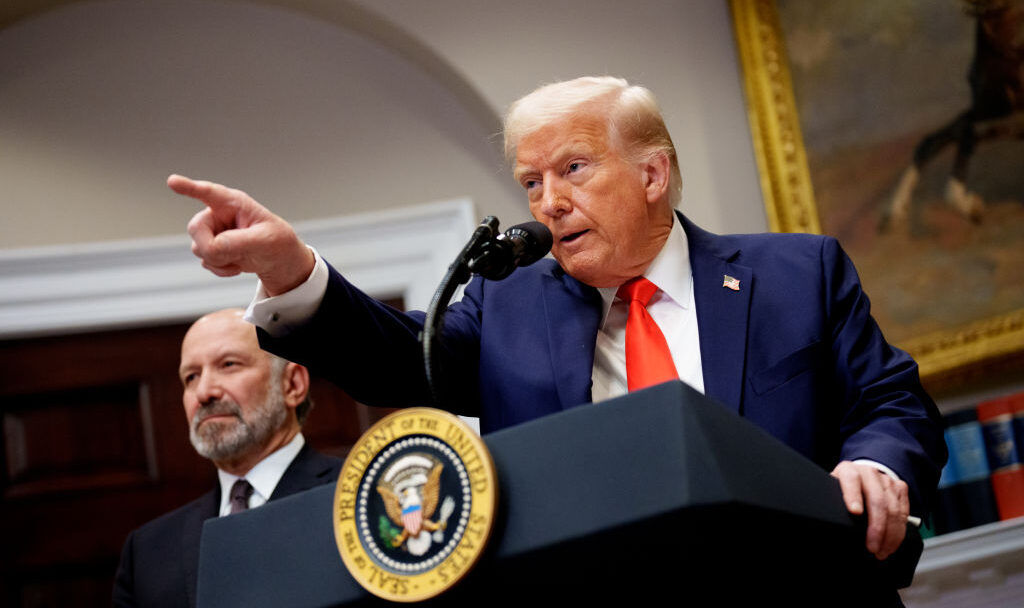Trump Threads the Needle on Iran
President Trump brokers a ceasefire between Israel and Iran. Will it hold?

The news cycle now moves faster than ever to serve a public that wants answers. But geopolitical outcomes cannot be determined with the speed of a Google search.
Even with a hostile news media, the first draft of history on Iran looks good for President Donald Trump. Military strikes on Iranian nuclear facilities that could have easily spiraled out of control have instead given way to a fragile ceasefire in a matter of days.
In some ways, this is not surprising. It was always obvious that Trump wanted this to be a one-and-done operation, like the similarly risky but ultimately successful Qasem Soleimani assassination in 2020. Yes, his messaging grew confusing — remember “MIGA” and regime change? — and it appeared he was growing more invested in Iranian capitulation.
Yet it has long been clear that Trump has little appetite for extended military interventions. Brinkmanship followed by speedy declarations of victory have been his way of doing things, both on domestic and foreign policy. In the Iranian nuclear program, Trump and the neoconservatives had a common enemy. And Trump has never gone as far as his less interventionist supporters when it comes to wanting to restrain American military power.
Nevertheless, Trump’s basic instincts are different from those of every major Republican leader with comparable power over the last 25 years. Despite working closely with Benjamin Netanyahu to defang Iran, not since at least George H.W. Bush would an American president — especially a Republican one — have addressed an Israeli prime minister the way Trump is reported to have spoken to Bibi to keep the truce in place.
It was just never guaranteed that once Trump decided to get involved directly that the other participants and outside events beyond his control would cooperate with the desire for a more limited mission. Even after both Trump and Tehran decided to take the off ramps available to them, we don’t know how permanent this victory will be.
Much remains uncertain. How long will the ceasefire hold? How far was the Iranian nuclear program set back? Did U.S. military involvement do more to delay nuclear weapons than diplomacy would have? Will Israel want this to become the model for future joint undertakings against the ayatollahs?
There is a reason the initial reporting, which is often contradictory, is only history’s first draft. The social media certitude about what has transpired over these past few days is premature.
Not everyone who was aligned with Trump, whether just on the narrow question of striking the Iranian nuclear program or as a more regular part of his political coalition, will want to see the conflict end where he does or will be ready to see the U.S. go back to the negotiating table. There will be a clamor for more pressure and further military action.
If the facts on the ground in the Middle East are subject to change, so are the political conditions at home. Different factions around Trump will fight over future escalations as they once did over joining the Israeli airstrikes. Just because the advocates of foreign-policy restraint lost that (figurative, political) battle doesn’t mean future ones are necessarily lost. Nor should the trends in favor of restraint on the Right be discounted as factors reinforcing Trump's instincts.
War-weary conservative influencers overstated their, well, influence in the first debate over Iran. In most cases, their popularity flowed from their support for Trump rather than the other way around. Exceptions to this rule, such as Joe Rogan, often have the most tenuous ties to the conservative base, even if parts of their audience lean right.
Subscribe Today
Get daily emails in your inbox
Many hawks whose ties to Trump are loose to nonexistent except when he is bombing somewhere could easily overstep. But there are important questions about how the last neoconservatives standing played so well what looked like a weak hand on Iran. They and their allies have remained more internally cohesive and media-savvy even as their political and cultural influence have waned.
What the U.S. and Israel have already done in Iran are the things we have done best in our post-Cold War military interventions. It is clear that the GOP’s wildest hawks have still learned little about why regime change and nation-building have so often failed or why they are so difficult to avoid when pursuing anything but brief, well-defined military missions. Once we have decided who the bad guy is, there is little room for further questions.
The more interventionist camp inside the GOP will nevertheless almost certainly see the initial Iran successes as an opportunity to move beyond the failures of Iraq just as they used the Persian Gulf War to turn the page on Vietnam. This revisionist history cannot be allowed to take hold either in the first or subsequent drafts.